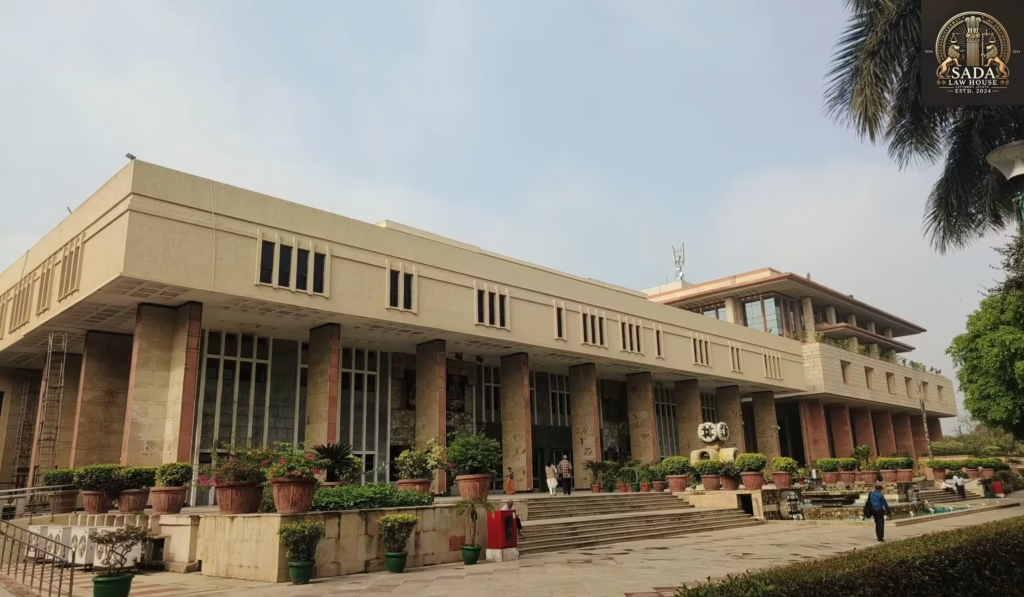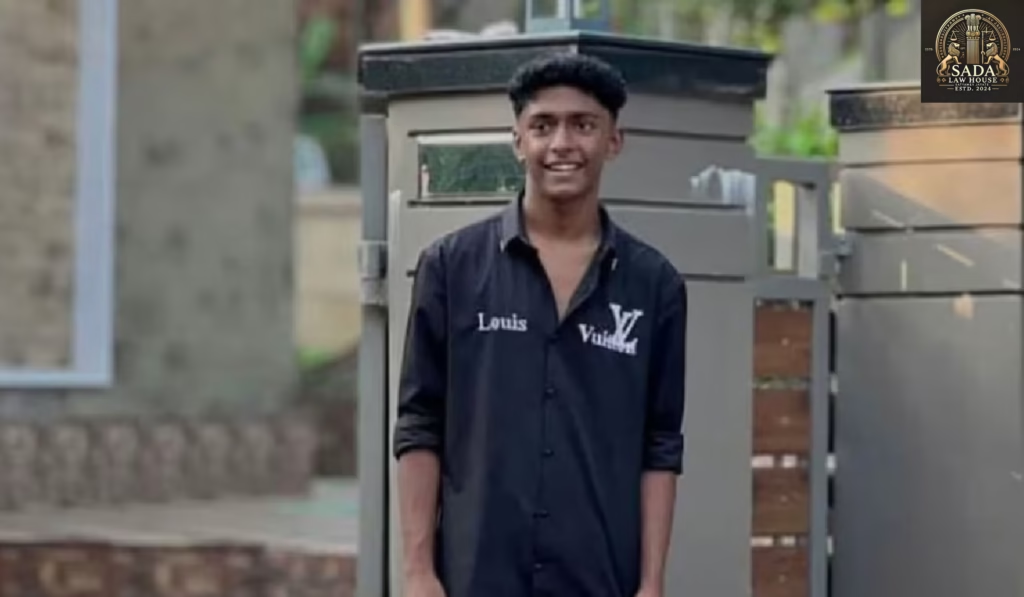Delhi High Court Slams DPS Dwarka for Publicly Shaming Students Over Unpaid Fees
Trending Today Delhi High Court Slams DPS Dwarka for Publicly Shaming Students Over Unpaid Fees AIMPLB to File Contempt Petition Against Centre Over Launch of Waqf Umeed Portal Amid Supreme Court Hearing on Waqf (Amendment) Act 2025 Supreme Court Forms Committee to Manage Overcrowding and Ban Illegal Mining in Ranthambore Tiger Reserve Kerala High Court Orders Disclosure of Cargo and Oil Spill Data from MSC Elsa Sinking on Environment Day Pakistani National Living in Goa Since 2016 Appeals to Supreme Court After Visa Revocation Madras High Court Recognizes Same-Sex Couples as Family, Upholds LGBTQIA+ Rights and Personal Liberty Supreme Court Ends 50-Year Shahdara Gurdwara Dispute, Affirms Sikh Ownership Chhattisgarh Teachers File Petition Against School Rationalization Orders Telangana High Court Reviews Cow Protection Law Enforcement Ahead of Bakrid Festival Bombay High Court Allows Animal Sacrifice at Vishalgad Fort During Urs Festival Amid Protests Delhi High Court Slams DPS Dwarka for Publicly Shaming Students Over Unpaid Fees PRABHAT KUMAR BILTORIA 07 June 2025 The Delhi High Court rebukes Delhi Public School, Dwarka for publicly shaming students over unpaid fees, emphasizing that schools must prioritize education over profit. Learn more about the court’s strong stance on student dignity and educational ethics. Delhi High Court Condemns DPS Dwarka for Public Shaming of Students Over Unpaid Fees On 6 June 2025, the Delhi High Court delivered a strong rebuke to Delhi Public School (DPS), Dwarka for publicly humiliating 31 students due to non-payment of school fees. The court labeled the school’s actions as a form of mental harassment that harms the students’ psychological well-being. DPS Dwarka Faces Criticism for Fee-Related Student Expulsions Earlier, DPS Dwarka had removed 31 students from its rolls, citing unpaid school fees. However, the school later reversed its decision and informed the court that the students had been reinstated. While the court acknowledged the resolution, it strongly condemned the initial conduct of the school. Court Calls Out Mental Harassment and Intimidation in Schools The bench stated unequivocally:“Public shaming or intimidation of a student due to financial default, particularly through force or coercion, constitutes mental harassment and undermines the psychological well-being and self-worth of a child.” The court denounced the alleged use of bouncers to block students from entering the school premises. It said such actions foster a “climate of fear, humiliation, and exclusion” that is incompatible with the core values of education. Schools Must Not Operate as Commercial Enterprises While the court acknowledged that schools have the right to collect fees, it stressed they must not function like business ventures.“Schools are institutions of learning, not profit-driven enterprises,” the court remarked. The emphasis was clear: educational institutions must prioritize value-based learning over monetary gain. Parental Responsibility in School Fee Payment The court also addressed the role of parents in the issue. It reminded them of their legal and moral obligation to comply with the court’s rulings regarding fee payments. The judgment urged parents to follow the directives issued on 16 May 2025 concerning fee dues. Balancing Educational Rights and Financial Responsibilities This case brings to light the ethical boundaries of how schools should address fee disputes. While fee collection is necessary, it must be conducted without compromising the dignity of students. The Delhi High Court’s intervention sets a precedent against treating children unfairly due to financial constraints. Conclusion: Schools Must Uphold Dignity, Not Profit The ruling from the Delhi High Court serves as a powerful reminder that schools exist to educate and nurture—not to intimidate or profit at the cost of student welfare. This case underscores the urgent need for compassion, accountability, and ethics in India’s education system. Leave a Reply Cancel Reply Logged in as Sada Law. Edit your profile. Log out? Required fields are marked * Message* Live Cases Delhi High Court Slams DPS Dwarka for Publicly Shaming Students Over Unpaid Fees Delhi High Court Slams DPS Dwarka for Publicly Shaming Students Over Unpaid Fees Sada Law • June 7, 2025 • Live cases • No Comments AIMPLB to File Contempt Petition Against Centre Over Launch of Waqf Umeed Portal Amid Supreme Court Hearing on Waqf (Amendment) Act 2025 AIMPLB to File Contempt Petition Against Centre Over Launch of Waqf Umeed Portal Amid Supreme Court Hearing on Waqf (Amendment) Act 2025 Sada Law • June 7, 2025 • Live cases • No Comments Supreme Court Forms Committee to Manage Overcrowding and Ban Illegal Mining in Ranthambore Tiger Reserve Supreme Court Forms Committee to Manage Overcrowding and Ban Illegal Mining in Ranthambore Tiger Reserve Sada Law • June 7, 2025 • Live cases • No Comments 1 2 3 … 5 Next »
Delhi High Court Slams DPS Dwarka for Publicly Shaming Students Over Unpaid Fees Read More »


